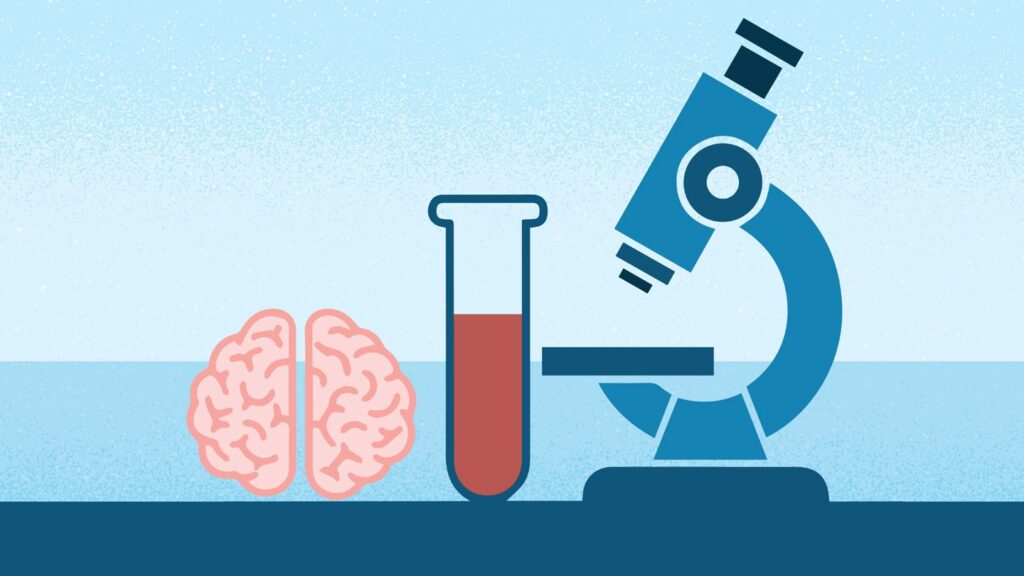People with memory or thinking changes who are worried they have Alzheimer’s disease can get an answer sooner thanks to a new blood test just cleared by the U.S. Food and Drug Administration (FDA).
Most people bring memory or thinking concerns to a primary care provider. But until recently, confirming or excluding an Alzheimer’s diagnosis would require a referral to a neurologist and possibly a spinal tap or PET scan.
“Tests like Elecsys are game changers. They expand access to minimally invasive testing for Alzheimer’s and benefit patients to help rule out Alzheimer’s‑related brain changes, reducing the need for costly or invasive follow‑up tests,” says Laurie Sanders, PhD, a researcher and associate professor of neurology at the Duke University School of Medicine in Durham, North Carolina.
How the New Alzheimer’s Test Works
Elecsys measures a blood biomarker associated with Alzheimer’s-type brain changes called phosphorylated tau-181 (p-tau181).
Once a primary care doctor decides the Elecsys test is appropriate, they can order a blood sample be sent to a laboratory equipped with Roche testing systems, says Maria-Magdalena Patru, MD, PhD, a scientific partner at Roche Diagnostics.
“The physician will review the results with the patient and discuss next steps for further evaluation or confirmation of diagnosis,” says Dr. Patru.
If the test is negative, Alzheimer’s-related amyloid buildup is unlikely, meaning there may be other conditions causing cognitive decline, says Timothy Chang, MD, PhD, an assistant professor of neurology and a member of the Mary S. Easton Center for Alzheimer’s Research and Care at UCLA in California.
It is important to note that a positive result means more information and testing is needed for a final Alzheimer’s diagnosis.
How Accurate Is the Test?
The Elecsys was evaluated in a multicenter, noninterventional study of 312 participants representing an “early-disease, low-prevalence” population like primary care.
The test showed a 97.9 percent negative predictive value. That means when the test result is negative, there’s a very high likelihood the person does not have Alzheimer’s disease.
The test is less accurate when it yields a positive result, which is why further assessments are needed in these cases.
How Is the New Test Different From Other Alzheimer’s Blood Tests?
Elecsys looks for only one protein, p-tau181, whereas Lumipulse uses a ratio of two proteins called p-tau217 and beta-amyloid 1-42.
The Elecsys test is slightly better for ruling out Alzheimer’s disease than the Lumipulse G, says Dr. Chang. “This means that a negative Elecsys pTau181 is more likely to mean the individual does not have Alzheimer’s disease pathology,” he says.
How Much Does the Elecsys Test Cost? Will Insurance Cover It?
Roche is actively working with both public and private insurers to establish appropriate coverage and coding pathways, says Patru.
The company expects insurance coverage to “evolve over time” once the test is used more widely and more real world evidence becomes available, says Patru.
“Roche’s goal is to make the test accessible and affordable for as many patients as possible. In the meantime, some physicians may offer it as a self-pay option while reimbursement processes are being established,” she says.
Pricing will vary by laboratory, and it will take time for pricing and coverage to be finalized as laboratories begin offering the test to patients, says Patru.

